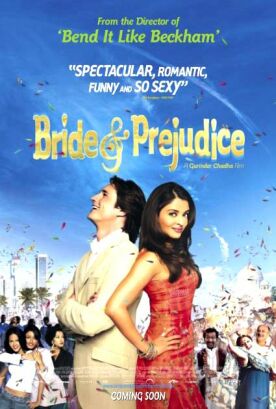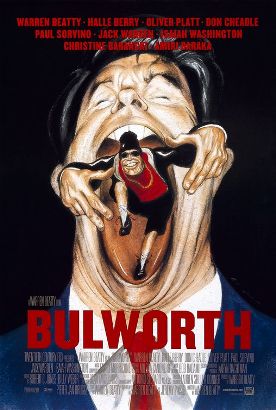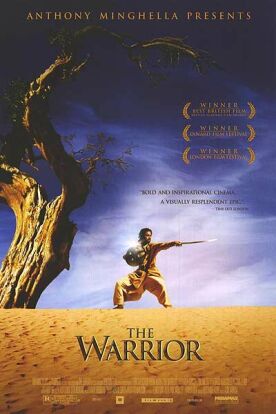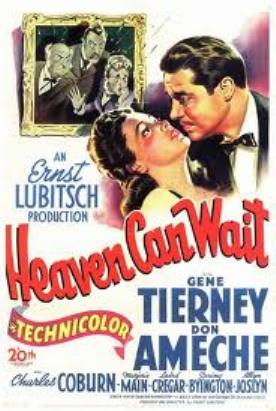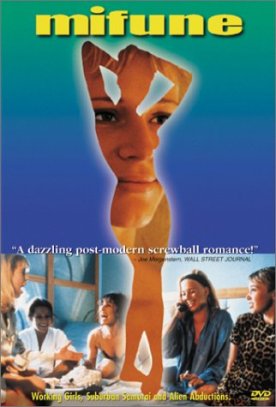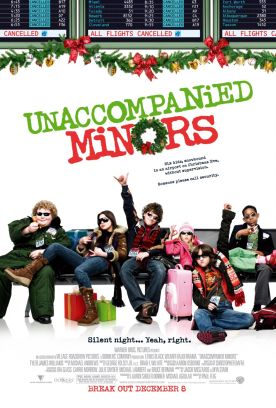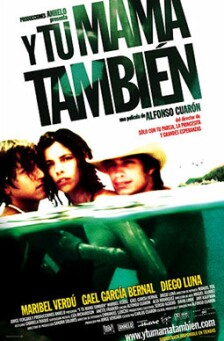Bride and Prejudice
To me it was surprising that the thing works as well as it does. Jane Austen’s Bennet girls as Indians? Mr Collins a vulgar Indian-American male chauvinist? Most incredibly, Mr Darcy an American? Surely not! And yet Bride and Prejudice, an adaptation and updating of Pride and Prejudice by Gurinder Chadha (Bend It Like Beckham), who directed and co-wrote the screenplay with her husband, Paul Mayeda Berges, is actually not much short of believable. More’s the pity, then, that the film seems to want to forestall criticism with its Bollywood trappings — Indian-style singing and dancing — that seem to signify its unseriousness. Perhaps it’s just my multi-cultural insensitivity, but I don’t think that this part of the movie adds very much to the always-interesting story of a family of girls in search of husbands.
Or rather, as you might expect, not in search of husbands. Not quite, anyway. The greatest departure from the novel isn’t so much the Indian setting as it is the need to lower the stakes for ideological reasons. To Jane Austen, that is, marriage is a deadly serious business on which the future not only of the girls themselves but of their whole family depends. That’s why, after all, girls were originally not trusted to pick their husbands for themselves. In India, the arranged marriage is still commonplace, which makes it a good choice for bringing something of Austenish world to life.Yet the film seems to me to miss its chance here. Jane Austen’s lightness of touch in dealing with serious, even fateful things, here becomes something not far off mere frivolity.
On the one hand, setting the whole thing in India in the first place was an obvious way to sanitize the theme of the search for a suitable husband, but on the other hand Ms Chadha thinks it necessary to present the two elder Bakshi (Bennet) girls, Jaya (Namrata Shirodkar) and Lalita (Aishwarya Rai) as confident, independent, essentially Westernized women who can take a husband or leave him alone. I can’t help thinking that something is lost by making the girls so modern and Western in outlook. When Will Darcy (Martin Henderson) speaks of the Indian custom of arranged marriages as “backwards,” the girls bristle up, but they essentially agree with him.
There is still more of the feminist subtext apparent in the character of Mr Kholi (Nitin Chandra Ganatra), the Mr Collins of the film, who has come back to India from California to find a “simple, traditional, submissive” Indian wife. “In US they’re all too outspoken and career orientated,” he says, and then in a shocked whisper: “and some have even turned to the Lesbian.” Well, you can guess what the film does with him. But the wealthy Indian, Balraj (Naveen Andrews), in the role of Bingley and his even wealthier American pal, Darcy, are naturally men of enlightened Western views as well as being dreamboats in every other way.
There is a certain amount of pleasure to be derived just from having Bingley-Balraj say to Jane-Jaye: “I’ll e-mail you as soon as I get back to England,” but the most successful bit of the adaptation comes with rough equivalence between sexual politics as we understand them today and the all-important manners of Jane Austen’s time. Lalita’s prejudice against Darcy, for example, is owing to his being a rich American much more than to any personal qualities, and her learning to love him depends on her ability to see that he is actually quite sensitive to her concerns about the environment and respect for indigenous cultures. Likewise, the scapegrace Wickham (Daniel Gillies) is able to worm his way into the affections of the youngest Bakshi, Lucky (Peeya Rai Chowdhary), with the help of his liberal views and his affected disdain for the Darcy millions.
All the same, I myself would have preferred to see less of the political and more of the personal in the romance of Lalita and Darcy, which naturally sucks up all the romantic atmosphere, leaving Balraj and Jaya and even Wickham and Lucky decidedly minor matters, as nothing more than their own happiness depends on the outcome of their romances. But it has to be said that, in the absence today of any other sort of manners than the political, it’s not easy to see what else the movie could have done. And then Nadira Babbar does such a marvelous job as the embarrassing Mrs Bakshi — embarrassing at least as much on account of her unrepentant old-fashionedness about needing to marry off her daughters (“Don’t say anything too intelligent,” she instructs them) as on account of her vulgarity — while Anupam Kher as Mr Bakshi has perfectly caught the long-suffering spirit of Mr Bennet and Marsha Mason does an enjoyable turn as Darcy’s dragon of a mom.
But when Mrs B. throws up her hands at Lalita’s rejection of Mr Kholi (“Lalita, I’m offering to take you to America,” he says incredulously), saying that she can’t understand how it is that her daughter “wants love to be there from the beginning,” the irony is that she is really the more romantic of the two. Lalita is the one with a stringent set of specifications her would-be husband has to measure up to while her mother thinks that love, albeit delayed until after marriage, will overcome all shortcomings. It all makes for an enjoyable couple of hours, though those who are old-fashioned enough to want to see as much of a genuine Cinderella story as the original may find that they are somewhat disappointed.
Discover more from James Bowman
Subscribe to get the latest posts to your email.

